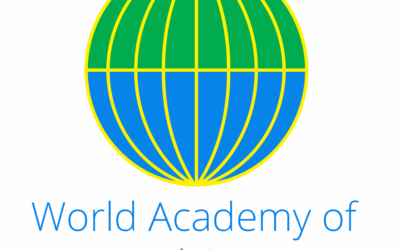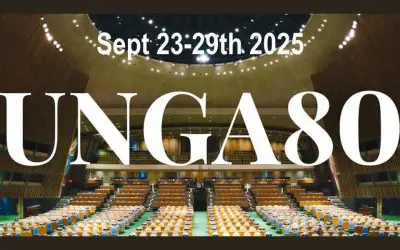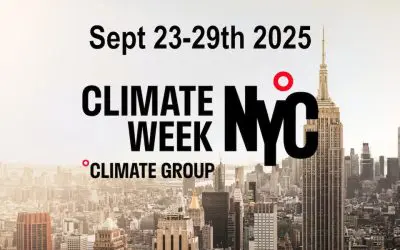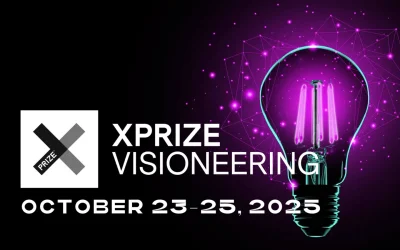– Press Release –
Embargoed Thursday 00:01 BST 14th September 2023
Funding shortfall for UN Sustainable Development Goals keeps rising but clear solutions pathway shows deadline can be achieved, new research finds.
Progress on the United Nations Sustainable Development Goals (SDGs) has stalled and in some cases reversed, exacerbated by a funding shortfall of up to US$137 trillion, raising the risk of failure by the 2030 deadline, the latest Capital as a Force for Good annual report finds.
Despite a global spend of around $5 trillion in 2022 towards delivering the goals, the funding shortfall has remained stubbornly high and roughly constant compared to last year’s shortfall of up to $135 trillion, but with one year less to achieve the goals. Whilst ongoing challenges including the Russian war in Ukraine and rampant global inflation have played a part, the key headwind remains chronic underfunding of the SDGs which is being outpaced by the escalating scale of the issues needing to be addressed.
With only seven years now remaining to the 2030 deadline, meeting the goals will require a massive global effort to mobilize capital, resources and stakeholders on a scale never seen before, the report finds. However, a range of proven solutions already being deployed across the public and private sector have the potential to deliver the majority of each of the 17 goals.
Policy implementation, through legislation and regulation, plays perhaps the most critical role and can account for nearly a third of the underlying SDG targets, with the public and private sector activities closing the remainder of the gap in almost equal measure, enabled by technology and the financing of all the solution areas. The global finance industry, which administers 88% of the world’s liquid capital, has an important role to play in this mobilization, the report finds.
Many of these approaches, initiatives and solutions can be either scaled, replicated or harnessed to drive wider impact. The report identifies 15 such initiatives, which if they were scaled and implemented globally could address 70% of the SDGs. Together they show progress is possible with sufficient global support, political alignment and targeted deployment of additional capital.
They include:
- Sweeping national and regional policy packages, from incentive driven spending to regulation and legislation in the vein of the EU’s Green Deal policies and the Inflation Reduction Act in the US
- Innovative financing approaches to mobilize capital and de-risk investments, such as debt for nature swaps, environmental impact bonds and carbon pricing mechanisms
- Technology platforms to deliver digital infrastructure at scale across key areas including education, health and finance, such as India’s ‘stack’ of technologies that have provided half a billion people with financial inclusion
- Private sector and non-government initiatives and business models to tackle systemic issues from waste to poverty and biodiversity loss.
The full report, based on extensive analysis and engagement with stakeholders including some of the world’s leading financial institutions, is being published ahead of the high-level General Debate at this year’s UN General Assembly, and can act as a blueprint for renewed efforts to tackle the SDG funding shortfall most effectively.
“Because of the global challenges shaking the world over the past few years, we’ve been running to stand still in terms of making progress on the SDGs. But fundamentally the solutions exist to deliver the goals, and achieving the goals is within reach. Now we need to target efforts and resources to where the impact is greatest,” said Ketan Patel, Chairman of Force for Good and CEO of Greater Pacific Capital.
The SDGs are critical targets adopted by all UN member states and span every aspect of sustainability, including the environment, education, equality, health, and governance. Agreed by all 193 UN member states, they are a shared blueprint to achieve peace and prosperity for people and the planet, setting a baseline for the world’s continued sustainable growth.
The latest UN assessments show that none of the 17 goals are set to be achieved by 2030, with only 12% of the underlying targets on track, 50% moderately or severely off track and nearly one third have either stalled or regressed below 2015 levels.
The largest gaps are unsurprisingly in the poorest and largest countries. India is seeing its gap rise the fastest, so is a pivotal nation for determining whether the world achieves the SDGs, the report finds.
About Force for Good
Force for Good’s mission is to mobilize capital, resources, and ideas as a force for good in the world at a time of profound change. The organization’s Capital as a Force for Good Initiative is guided by an advisory council consisting of global policy, business and social impact leaders and engages the world’s leading financial institutions and other stakeholders, to promote sustainable development through the deployment of capital and solutions that address the world’s greatest issues and enable the transition to a better future.
The initiative publishes a report entitled Capital as a Force for Good assessing the role of capital in addressing the world’s most pressing issues. The report is now in its fourth edition and is a result of collaboration between the United Nations and the initiative, and the efforts of the many financial institutions and organizations actively engaging and supporting it. For further details, please visit www.forcegood.org.
Companies actively engaged include Bank of America, BlackRock, Bridgewater Associates, Citi, Credit Suisse, Fidelity Investments, First Abu Dhabi Bank, GIC Singapore, Goldman Sachs, Great-West Lifeco, HDFC Bank, HSBC, Investec Group, Japan Post Holdings, JPMorgan Chase, Liberty Mutual Insurance Group, Lloyds Banking Group, Morgan Stanley, Nomura, Nordea, Northern Trust, OMERS, Putnam Investments, Schroders, State Street, UBS, Wellington, and others. The report includes over 100 financial institutions in total in the analysis.
Media Contact Robin Knight, Brunswick Group
rknight@brunswickgroup.com +44 7884 264012
Download Report here or on www.forcegood.org







